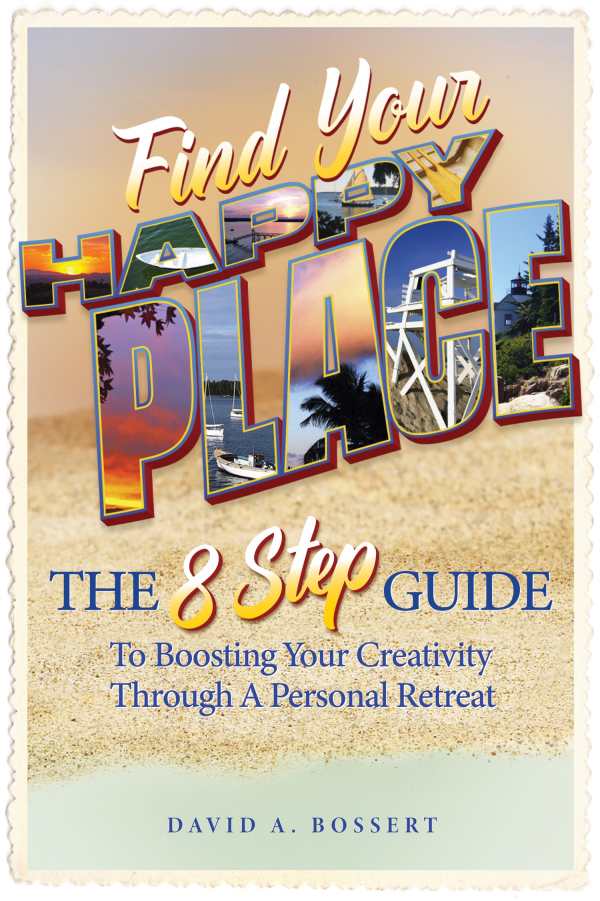Find Your Happy Place
The 8-Step Guide to Boosting Your Creativity through a Personal Retreat
With guidance to help people choose to be alone in an intentional way in the name of cultivating creativity, Find Your Happy Place is an accessible self-help book.
David A. Bossert’s methodical self-help book Find Your Happy Place is about finding that special “spot where you can be away from everything and everybody,” allowing you “to leave behind your self-consciousness and the influences of others.”
Bossert’s own happy place is a coastal town in northern Maine, where he can unplug and learn new artistic skills. Having experienced a series of family losses, he made a life-changing career transition and began writing books and going on annual retreats in search of clarity, focus, and renewal. Here, the focus is on one element of such pursuits: solitude in a removed location (as solo activities in public, like wandering a shopping district, still require interacting with others). Indeed, for Bossert, a retreat requires seeking quality time alone, sans electronic distractions, friends, and family members. In a different environment without distractions, the book claims, it is easier to connect with and explore the surrounding world without the strictures of scheduled activities.
Being alone in an intentional way is presented throughout as a conscious choice. Further, it is promoted for feeding into artistic expressions, and the book includes noteworthy illustrations to bolster its claims. The example of poet and novelist Victor Hugo (recalled for having broken his procrastination habit by staying in his study wearing just a shawl until he finished The Hunchback of Notre Dame, which he was then able to release early for publication) is held up in testimony of the value of such approaches.
The book’s suggestions are accessible, adding to their appeal—anyone, the book suggests, can write in their journal or set up a time to walk. Individual chapters end with tips and worksheets to put their suggestions into practice, as with an encouraging prompt to “reflect on the length of time you took and the timing of the retreat.” However, the book’s plentiful internal references are too vague to be persuasive, as with claims supported by too-general gestures to “studies [that] have shown” them to be true, and with a claim that “writing down one’s goal and the plan to achieve it” has been “proven in scientific studies to be more effective than just verbally committing to it.” This lack of specificity undermines much of the book’s appeal and pushes toward conscious decision-making.
Find Your Happy Place is a refreshing self-help guide that encourages cultivating creativity in the course of personal retreats.
Reviewed by
Stephanie Marrie
Disclosure: This article is not an endorsement, but a review. The publisher of this book provided free copies of the book and paid a small fee to have their book reviewed by a professional reviewer. Foreword Reviews and Clarion Reviews make no guarantee that the publisher will receive a positive review. Foreword Magazine, Inc. is disclosing this in accordance with the Federal Trade Commission’s 16 CFR, Part 255.

